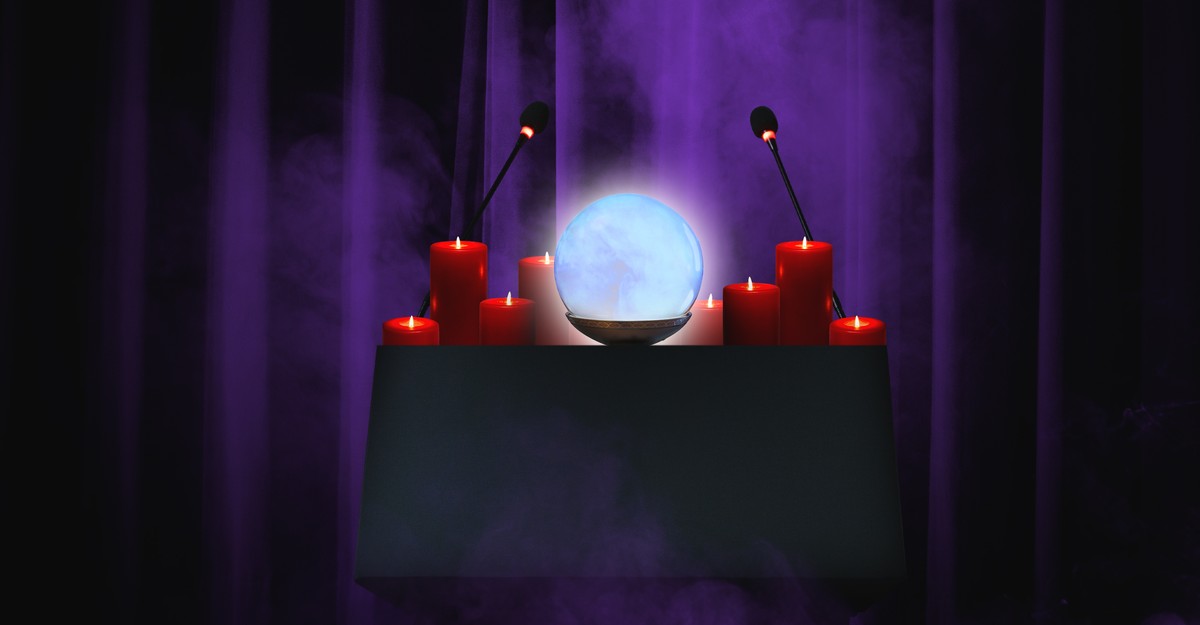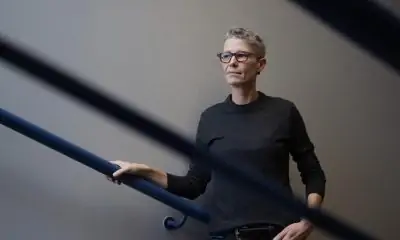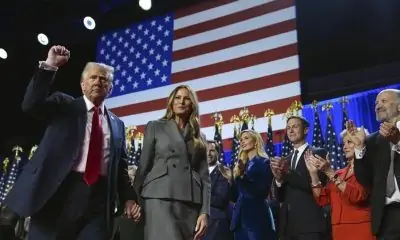A decade ago, I arrived in Antananarivo, the capital of Madagascar, for my first stint of field research into the island’s volatile politics. While unpacking in my hotel room, I heard sporadic celebrations erupting in the streets below. Confused, I asked a jubilant man what was going on.
“The army captured the militia’s sorcerer,” he told me. “The president just announced that soldiers seized all of the sorcerer’s diabolical objects—and they’ll soon be destroyed.”
Heavily armed criminal militias, known as the dahalo, had been terrorizing civilians in rural Madagascar. Now their sorcerer was in custody, and his talismans were broken and burned. The government and the public believed that the dahalo had suffered a severe blow, and that a more peaceful future was possible. The president, who had been in a precarious state politically, got a much-needed popularity boost.
The lesson was obvious: Whether the sorcerer or the talismans really had powers didn’t matter. What mattered was what people believed. Beliefs, true or false, rational or irrational, shape politics.
Almost exactly three years ago, I saw a similar spectacle unfold on television as the president faced a tough reelection bid. Early returns suggested that his time was up, but his chief spiritual adviser, known for warning the public about the dangers of “a demon prince in the form of a many-headed dragon,” had one more trick up her sleeve. She marshaled spiritual forces to save the embattled incumbent, calling on “angels of Africa” and denouncing the “demonic confederacies” who were channeling satanic forces in their quest to remove him from power.
Except this time, the spectacle was unfolding not in Madagascar but in the United States—and the speech was from Paula White, the woman whom Donald Trump had handpicked to lead prayers both at his inauguration and at his ill-fated rally on January 6, 2021.
The rationalists among us may scoff at supernatural beliefs and little imagine that politics could be decisively swayed by superstition, mysticism, and theories of demonic forces. But we don’t need to imagine. Forty percent of the global population believes in witchcraft, defined as the “ability of certain people to intentionally cause harm via supernatural means.” Surveys covering nearly 100 countries and published last year in a top scientific journal show that the prevalence of belief in witchcraft varies widely, from Tunisia (where 90 percent of the population believes it’s real) to Sweden and Denmark (where the figure is below 10 percent).
The phenomenon is not limited to any one region or level of economic development. Roughly two-thirds of Latvians, half of Brazilians, a third of Spaniards, and a fifth of French people self-report a belief in witchcraft. In the United States, the figure is 16.4 percent—one in six Americans. And in the United States, unlike, say, in France, a subset of those who believe in demonic forces and witchcraft have become a potent political force, exerting significant sway on right-wing elected officials. In turn, cynical figures in the MAGA movement have worked to co-opt these true believers for their political goals.
When trying to understand a political culture, you have to examine the society as it exists, irrational warts and all. And yet, most of us prefer to look at the world through a reverse fun-house mirror, in which the complex and sometimes-wacky beliefs of our fellow citizens are reflected back at us with the straight, clear-cut lines of reason and logic. We attribute voter behavior to policy proposals and economic data, rather than to the knock-on effects of widely held conspiracy theories or other nonrational beliefs.
In other words, most of us who professionally study human societies—or try to explain political systems in the press—have a severe case of rationality bias: We think of ourselves as purely rational agents, and we too often wrongly assume that everyone else thinks about the world the same way we do. This assumption distorts our understanding of how people actually make decisions, why they behave the way they do, and, by extension, how and why big social and political changes take place.
Figures vary, but by most estimates, about 85 out of every 100 people in the world believe in God. And yet, an analysis of top political-science-research journals found that only 13 out of every 1,000 articles published were primarily about religion (a rate of just over 1 percent). That figure is absurdly low—professional malpractice for a field that attempts to explain political systems. But the scholarship is even thinner on disorganized but widespread belief systems, such as acceptance of the power of witchcraft. The analysis didn’t provide data on how many research articles focused on other forms of supernatural belief, including shamanism, animism, and the like, which we can safely assume have received even lower billing. The upshot is that we political scientists have an enormous blind spot. Pundits are even worse: When’s the last time you heard a serious cable-news discussion about the political influence of witchcraft and demonic forces? A serious rift divides the way professional analysts explain political systems and the way voters within those systems actually see the world, whether in the United States or in societies where such seemingly strange beliefs are more openly discussed.
“There is little doubt,” writes Ronald Hutton, the author of The Witch: A History of Fear from Ancient Times to the Present, “that the majority of recorded human societies have believed in, and feared, an ability by some individuals to cause misfortune and injury to others by uncanny (‘magical’) means.” In modern times, such views are ridiculed among educated elites. But, as Hutton told me, “the overwhelming majority of Europeans still feared witchcraft until the early 20th century.” (The black cloak and pointy hat of popular Halloween attire were just what poor women wore in parts of 17th-century Europe.) Political elites mounted a concerted campaign to stamp out those beliefs over centuries, and its success was uneven, leaving some countries with far higher rates of belief in witchcraft and uncanny magic than others.
Anthropologists note that nonrational, magical, or superstitious beliefs appear in nearly all human societies, helping to make sense of a world in which individual lives can feel like the playthings of larger, unseen forces or, sometimes, random chance. When, say, cancer strikes, people look for explanations, and some fasten on literal demons. Nonrational beliefs can also allow believers to feel that they are harnessing unseen forces for their own purposes. They use witchcraft, voodoo, or other forms of uncanny magic to assert control in a world that feels uncontrollable. As a result, such worldviews tend to be most prevalent among those who feel powerless and face relentless calamities. Many believers view magic pragmatically, unsure of how an amulet or a talisman might work, but willing to try it nonetheless. As the Oxford historian Theodore Zeldin put it, superstition is a bit like the “modern car-driver, who does not know how his car works, but trusts it all the same, interested only in knowing which button to press.”
Mystical beliefs are not mere outliers to be edited out of our “rational choice” understanding of how and why political actors and voters behave, or how and why societies change over time. Rather, such nonrational beliefs have decisively shaped domestic and global affairs in countless cases.
For example, the United States nearly invaded Haiti in 1994, in “Operation Uphold Democracy,” in order to topple a brutal post-coup military regime. As American gunships anchored off the Haitian coast, voodoo priests drew curses outside the American embassy in Port-au-Prince. A few days later, a plane crashed near the White House, and some houngans, or voodoo priests, interpreted this as evidence that the curse had worked. With that fortuitous sign, they prepared for battle, threatening to defeat U.S. forces with their own army of zombies. (A celebrity voodoo priest named Max Beauvoir and known as “houngan to the stars”—he had previously met Bill Clinton—eventually defused this crisis.)
In the first Liberian civil war of the 1990s, a preacher named Joseph Blahyi, who went by the nom de guerre General Butt Naked, led a particularly feared paramilitary unit. Said to be protected by magical amulets, Blahyi’s brigade fought naked to show their confidence that clothes and body armor were unnecessary. The unit committed mass atrocities and played a significant role in the outcome of the conflict.
Similar examples abound: In Myanmar, the former dictator Ne Win wrecked the economy by making banknotes worthless because they weren’t in denominations that were divisible by nine, his lucky number. In response, students organized mass protests on August 8, 1988, because they saw the number eight as powerful. Thousands of civilians were killed in the subsequent 8888 Uprising, as it became known, which still affects Myanmar’s politics today (it launched Aung San Suu Kyi to international prominence and is often compared to today’s anti-coup resistance).
Nonrational belief systems continue to drive geopolitical shifts. Recent research has shown that Chinese firms take significantly fewer financial risks during the company chairman’s zodiac year, which is said to bring bad luck. What’s more, ordinary Chinese citizens take fewer economic risks during their own zodiac years, too, affecting China’s wider economy.
And the United States doesn’t just have Paula White. Millions believe in QAnon, and more and more people are attending formal exorcisms, which often have overt political messages in support of Trump. The popular ReAwaken America tour was founded by a man who claims that COVID-19 vaccines are associated with the “mark of the beast.” A speaker at one such event warned that several diseases afflicting women are caused by “demon sperm.” The tour doesn’t just feature fringe characters with little influence; its speakers have included Michael Flynn, Robert F. Kennedy Jr., Eric Trump, and Representative Paul Gosar of Arizona. Across the aisle, self-described witches and “magical thinkers” attempted to curse Trump’s presidency with spells. Unlike their Republican counterparts, however, those groups have effectively zero influence on Democratic Party politics.
Beliefs drive politics—and irrational beliefs are widespread. Discussions of demons have become mainstream in Republican political gatherings and echo from the lips of influential MAGA firebrands. Political scientists and commentators shouldn’t dismiss these views because they seem outlandish. We need more research into these communities—and a better understanding of the political extremism they may unleash. We also need polling and survey research that tries to accurately measure these beliefs, so that we can better understand the reality of voter perceptions rather than asking only about more traditional concerns such as taxes and health care. Because, like it or not, those who worry about the potent force embedded in certain diabolical objects are not just to be found in places like Madagascar. They also have the ear of the man who may soon return to the White House.
Happy Halloween!



































